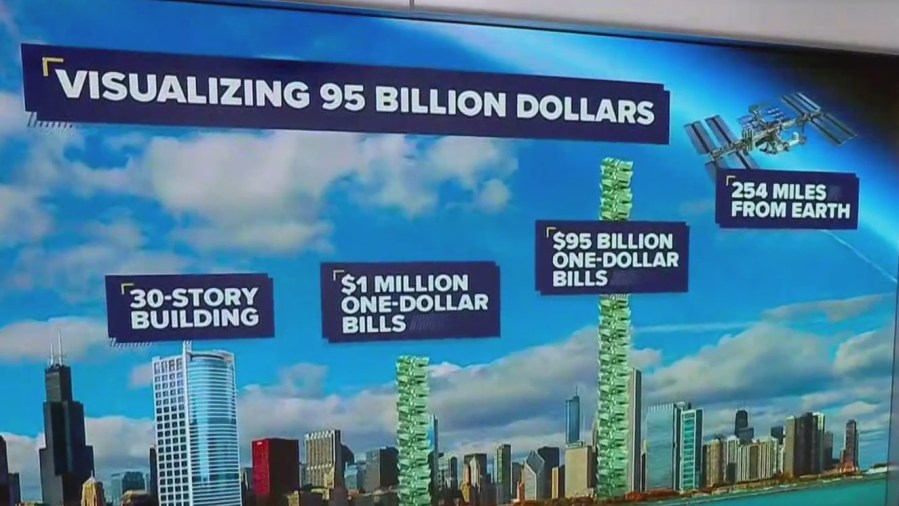US doesn’t ‘have $95 billion’ to fund foreign aid bill: Sen. Ron Johnson
- The bill was stripped of U.S. border security reform
- Supporters: Ukraine needs money to keep Russia from winning
- GOP critics: The U.S. must spend money on its own problems
Testing on staging11
(NewsNation) — In a bipartisan move, the Senate greenlit a $95 billion foreign aid bill, despite vocal opposition from some lawmakers who warn of the dangers of excessive spending.
The bill’s passage marks a significant milestone in the ongoing discourse surrounding fiscal responsibility and foreign policy priorities. Sen. Ron Johnson, R-Wis., who voted against the bill, minced no words in expressing his concerns during an interview on NewsNation’s “On Balance.”
“First of all, we don’t have that $95 billion. Don’t have it,” Johnson emphasized, advocating for redirecting spending towards pressing national concerns such as border security. “Spending money you don’t have is a bad idea; wasting money you don’t have is dangerous.”
The $95 billion price tag attached to the bill has sparked intense scrutiny, with lawmakers and analysts alike grappling to comprehend the magnitude of such a substantial allocation of funds.
However, proponents of the bill argue that foreign aid is essential for fostering stability and promoting American interests abroad. They point to the geopolitical ramifications of withholding aid from key allies and emphasize the importance of upholding international commitments.

Despite the Senate’s endorsement, the fate of the bill remains uncertain as it heads to the House for further deliberation.
House Speaker Mike Johnson, R-La., said in a statement the package lacked border security provisions, calling it “silent on the most pressing issue facing our country.” It was the latest — and potentially most consequential — sign of opposition to the Ukraine aid from conservatives who have for months demanded that border security policy be included in the package, only to last week reject a bipartisan proposal intended to curb the number of illegal crossings at the U.S.-Mexico border.
“The House is being pretty straightforward. They’re not going to take up this aid bill,” remarked Johnson, reflecting on the uphill battle the legislation faces in the lower chamber.
Acknowledging the challenges posed by the prevailing political landscape, Johnson criticized the handling of negotiations, particularly admonishing Senate Minority Leader Mitch McConnell‘s role in orchestrating what he deemed an “awful” deal. “It was worse than doing nothing,” Johnson remarked.
